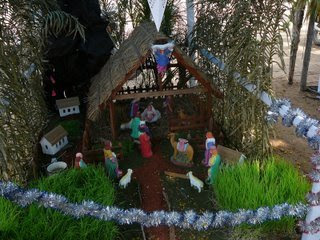Receive Prasadam, the kerala Hindu way of wishing you a good day
Literally, a gracious gift. Anything, usually an edible food, that is first offered to a deity, saint, Perfect Master or an Avatar and then distributed in His or Her name to their followers or others as a good sign. The prasad is then considered to have the deity's blessing residing within it. In contemporary Hindu religious practice in India, the desire to get prasada and have darshana are the two major motivations of pilgrimage and temple visits. As a spiritual state prasāda has a rich history of meanings in the Sanskrit tradition from Vedic literature onwards. In this textual tradition, prasada is a mental state experienced by gods, sages, and other powerful beings which is marked by spontaneous generosity and the bestowing of boons. Prasāda is understood in this sense of a mental state from the earliest literature (Rig Veda) onwards — not as an aspect of ritual practice. In later texts such as the Shiva Purāna, references to prasada as a material substance begins to appear alongside this older meaning. In its material sense, prasada is created by a process of giving and receiving between a human devotee and the divine god. For example, a devotee makes an offering of a material substance such as flowers, fruits, or sweets which is called naivedya. The deity then 'enjoys' or tastes a bit of the offering, which is then temporarily known as bhogya. This now-divinely invested substance is called prasāda and is received by the devotee to be ingested, worn, etc. It may be the same material that was originally offered or material offered by others and then re-distributed to other devotees. In many temples, several kinds of prasada (e.g., nuts, sweets) are distributed to the devotees.
http://en.wikipedia.org/wiki/Prasad





Comments